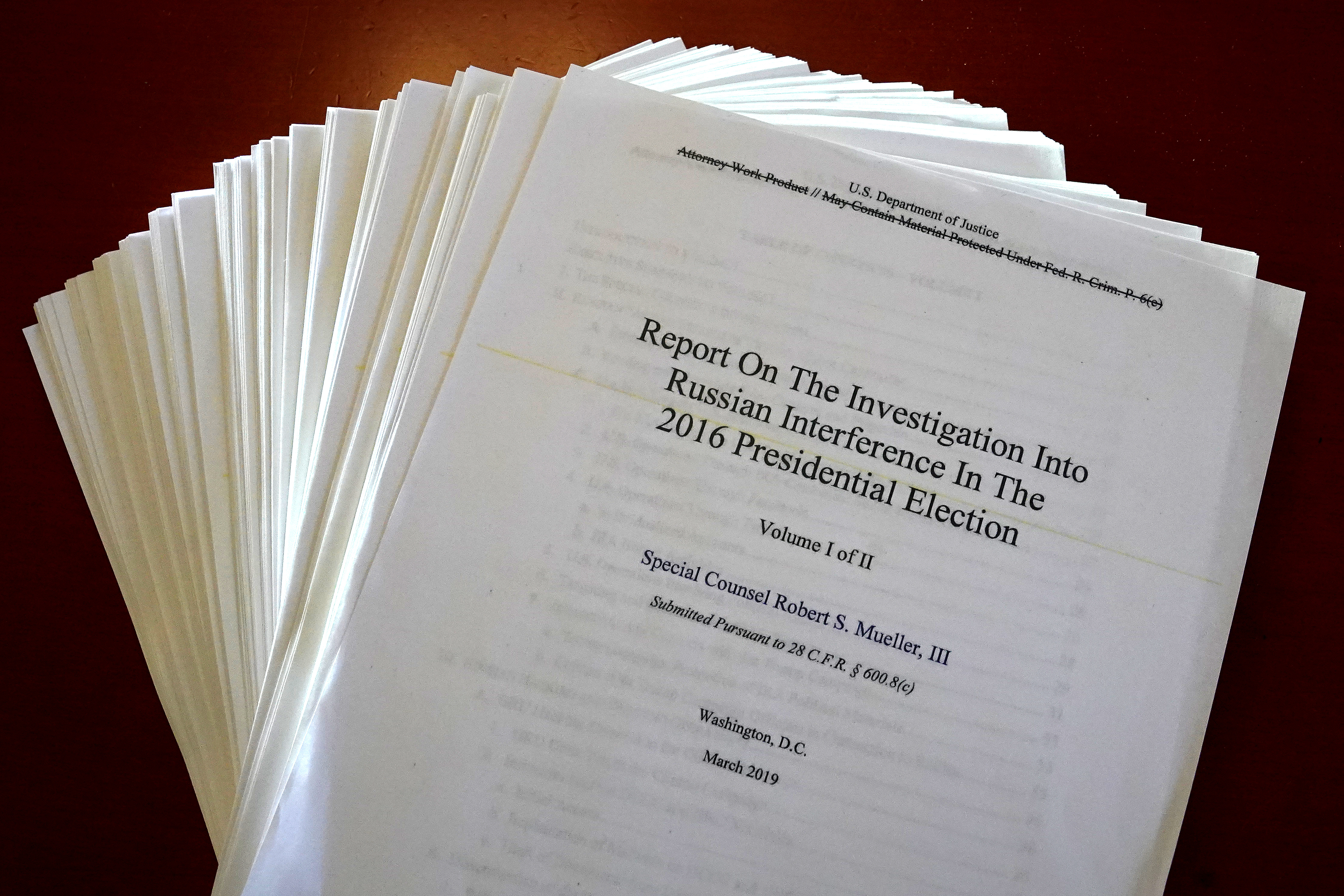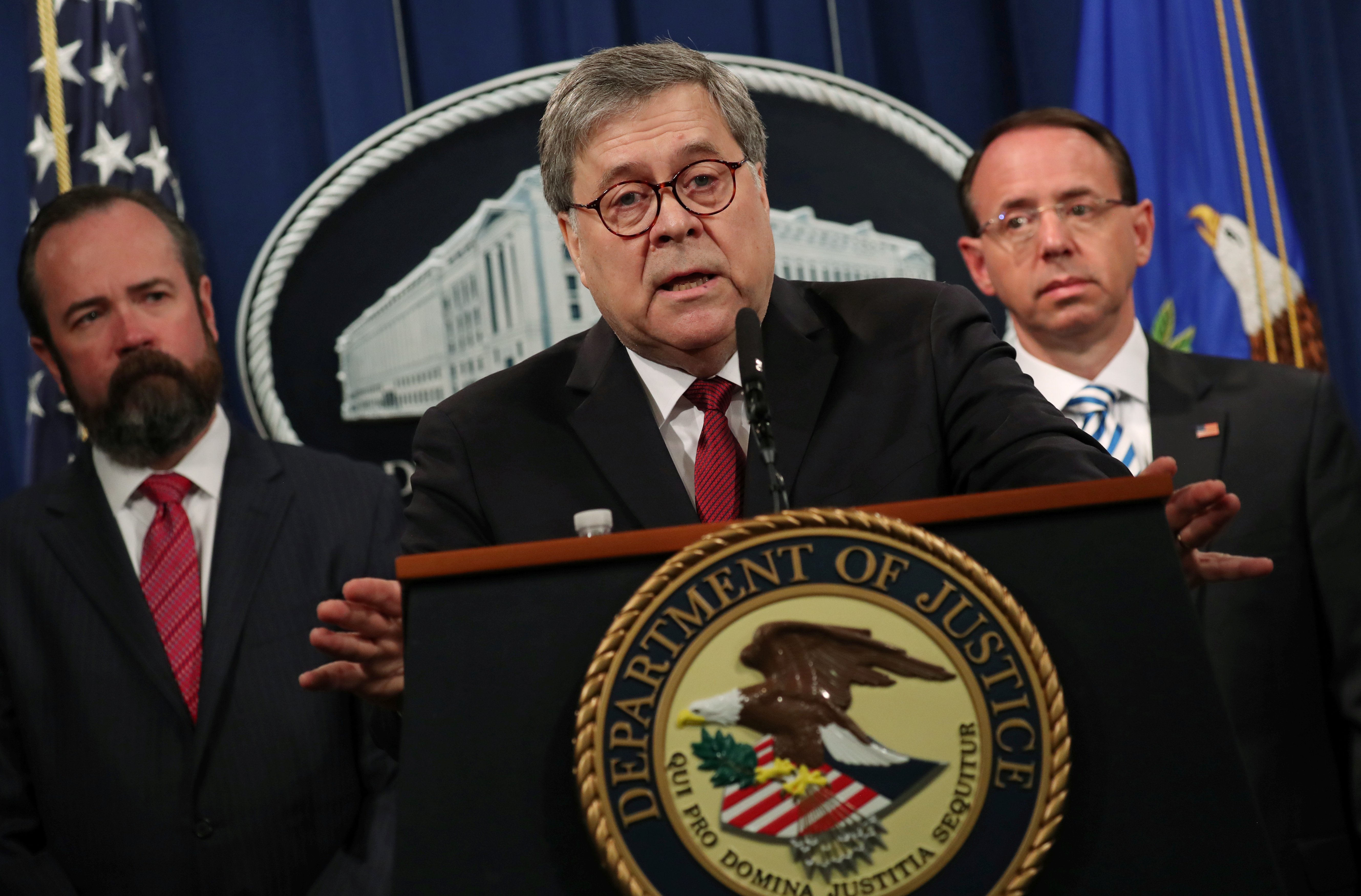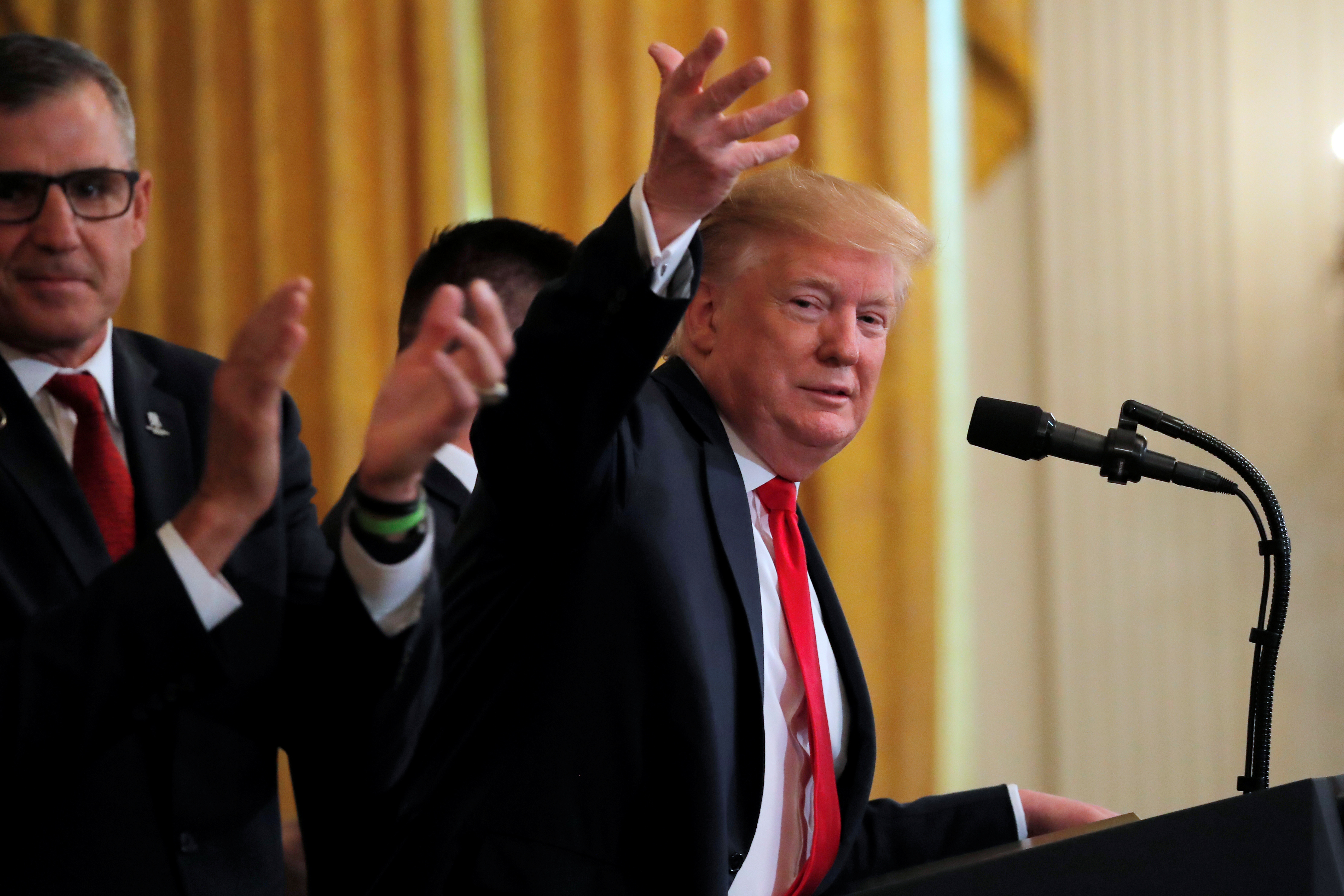- The “biggest implication” of special counsel Robert Mueller’s 400-page report could be calls for more Russian sanctions.
- Mueller found no evidence of collusion between the Trump campaign and Russian government.
- Energy analysts warn “reminders of Russian malfeasance might stoke Congressional Russia sanctions momentum.”
The “biggest implication” of special counsel Robert Mueller’s 400-page report could be that “reminders of Russian malfeasance might stoke Congressional Russia sanctions momentum,” according to analysts at ClearView Energy Partners.
Mueller found no evidence of collusion between the Trump campaign and Putin regime. Mueller also did not conclude President Donald Trump obstructed justice, though the report did not exonerate him either.
Trump saw Mueller’s report as a major win. However, the report’s detailed description into Russian agents’ attempts to interfere in the 2016 election have some lawmakers fired up about punishing the Kremlin.
Congressional calls for sanctions, especially on Russian energy companies and assets, could grow in the Mueller report’s wake, ClearView analysts said in a memo released Thursday.

The Mueller Report on the Investigation into Russian Interference in the 2016 Presidential Election is pictured in New York, New York, U.S., April 18, 2019. REUTERS/Carlo Allegri – RC1FC6D62AF0
Republican Colorado Sen. Cory Gardner suggested passing legislation to sanction Russia and another bill to fund projects to lessen Europe’s reliance on Russian oil and natural gas imports.
“I will keep up the pressure on the Putin regime and pursue additional sanctions — they cannot go unpunished,” Gardner said.
The report also confirms what we already know, Russia interfered in our election. I will keep up the pressure on the Putin regime and pursue additional sanctions – they cannot go unpunished.
— Cory Gardner (@SenCoryGardner) April 18, 2019

U.S. Attorney General William Barr, flanked by Edward O’Callaghan, Acting Principal Associate Deputy Attorney General (L) and Deputy U.S. Attorney General Rod Rosenstein, speaks at a news conference to discuss Special Counsel Robert Mueller’s report on Russian interference in the 2016 U.S. presidential race, in Washington, U.S., April 18, 2019. REUTERS/Jonathan Ernst.
Support for increased sanctions on Russia have grown during Trump’s time in office. In ClearView’s estimation, the White House and GOP lawmakers “might prefer to redirect the popular narrative towards Russia sanctions legislation ahead of 2020 elections.”
Trump administration officials have been casting Russia in a negative light in recent months, warning the Kremlin against propping up the socialist Maduro regime.
Attorney General Bill Barr made certain to detail Russia’s election meddling in his Thursday press conference before Mueller’s report was released. The Trump administration has also framed its “energy dominance” agenda as part of a strategy to undercut Russia’s grip on Europe’s energy supply, and slapped Russian oligarchs and companies with sanctions for election meddling.
However, Trump has come under criticism from both parties for, in their view, not being tough enough on Russia. ClearView expects more lawmakers, Republican and Democratic, to renew their push for sanctions, despite what the White House might want.
Gardner pushed the bipartisan Defending American Security from Kremlin Aggression Act (DASKA), of which he is a co-sponsor. DASKA would expand sanctions to natural gas projects outside of Russia.

U.S. President Donald Trump hosts participants of the Wounded Warrior Project Soldier Ride in the East Room of the White House in Washington, U.S., April 18, 2019. REUTERS/Lucas Jackson.
Gardner also co-sponsored the European Energy Security and Diversification Act (EESD), which would allocate $1 billion to key natural gas infrastructure projects abroad.
On the left, New Hampshire Sen. Jeanne Shaheen, a Democrat who co-sponsored legislation EESD with Gardner, urged Trump to “finally hold the Kremlin accountable for its attack on our democracy.” Gardner and Shaheen sit on the Senate Committee on Foreign Relations.
The report makes clear that Russia brazenly attacked our election. We need to make sure this doesn’t happen again. I hope the findings related to Russian interference compel the Trump administration to finally hold the Kremlin accountable for its attack on our democracy.
— Sen. Jeanne Shaheen (@SenatorShaheen) April 18, 2019
There’s also the Defending Elections from Threats by Establishing Redlines Act (DETER), introduced by Sens. Chris Van Hollen of Maryland and Marco Rubio of Florida, which imposes sanctions on a key sectors of Russia’s economy, including energy.
All content created by the Daily Caller News Foundation, an independent and nonpartisan newswire service, is available without charge to any legitimate news publisher that can provide a large audience. All republished articles must include our logo, our reporter’s byline and their DCNF affiliation. For any questions about our guidelines or partnering with us, please contact licensing@dailycallernewsfoundation.org.


